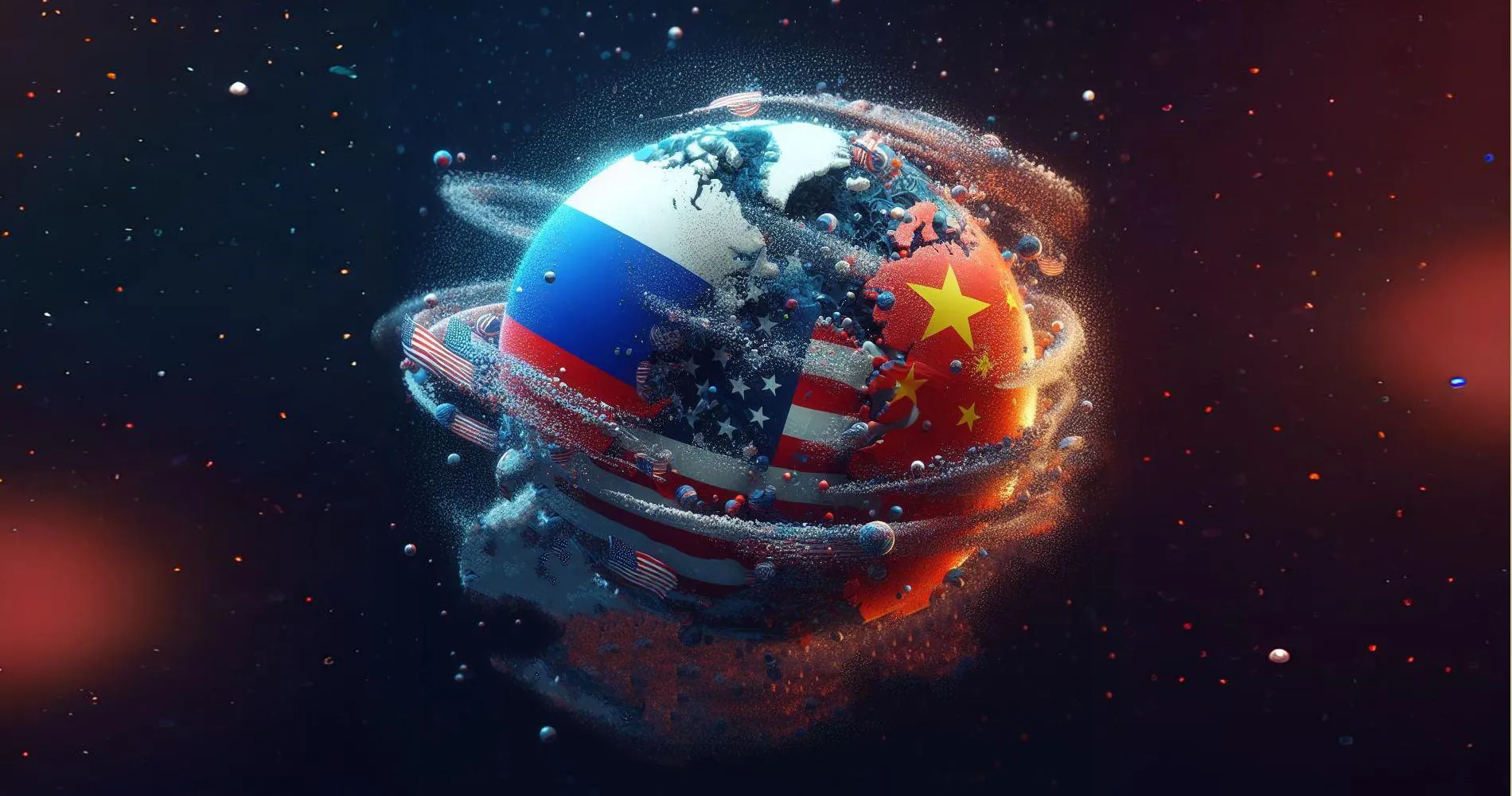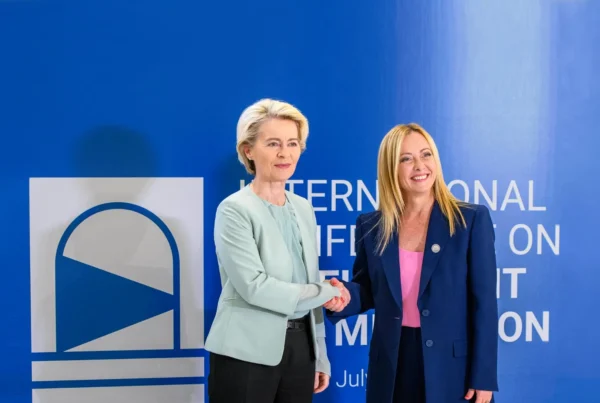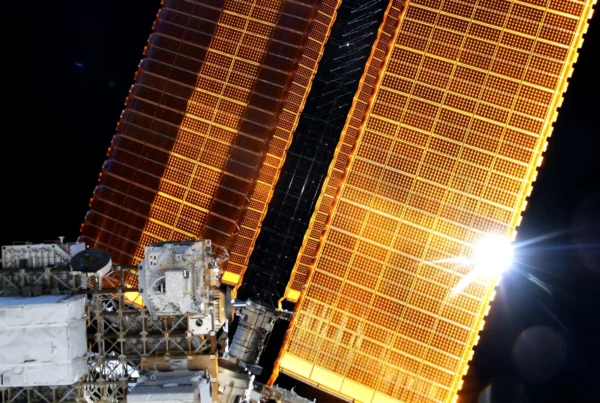The Ukraine-Russia war and Irael’s war on Gaza is reshaping the global balance of power. No longer can the US remain the world’s hegemon. A new multipolar order is emerging. Russia, China, and possibly other global players such as India, Brazil, Turkey and Iran will share the role which was previously occupied by the US hegemon after the fall of the Soviet Union. The West’s unequivocal support of Israel and its security dependence on the US through NATO has determined the international role and security options of most European nations – especially the UK and Germany.
Susanne Weigelin-Schwiedrzik, 1 March 2024
Arabic version | German version | Russian version
Two years after the start of Russia’s war against Ukraine, the world is in disorder. A world in disorder is striving for a new order, precisely in order to bring new stability and predictability to this unbearable disorder. There is currently much discussion everywhere about the fact that the time when the US-dominated the world as by far the strongest power has come to an end and that the world is now entering a phase of multipolarity.
Various ideas are being articulated: The country where there is the most talk of multipolarity is Russia. Russia sees multipolarity as a world order in which at least three major powers are in charge. China, on the other hand, is wavering between two options. When Xi Jinping travels to Moscow, he agrees with Putin that the world order must be redefined in terms of multipolarity. However, when he meets with Joe Biden, as he did recently in San Francisco, he emphasizes that the world can only regain its order and stability through cooperation between China and the US, and probably has a bipolar order in mind.
Another variation on the idea of multipolarity is put forward by those countries that hope to gain a place at the multipolarity table in addition to the three great powers as part of the reorganization of the world, such as India, but also Turkey, Brazil and Iran, to name just a few of the candidates. European countries and Japan, which in earlier times were taken for granted as poles in a multipolar order, are now no longer listed among the most powerful countries in the world. This has to do with their lack of military strength, their economic problems and their close cooperation with the USA, which some have criticized as “vassal-like”.
It is not yet clear whether the current European efforts to take on the main burden of supporting Ukraine in anticipation of a possible change in the political leadership of the US will have an impact on Europe’s position in a future multipolar order and whether Europe will be able to regain a significant place in world affairs.
The rivalry between the three nuclear powers – the USA, China and Russia – is about determining which of the three powers within the strategic triangle can significantly influence the actions of the other two rivals. It is being played out in the economic, technological-scientific and military spheres, partly because there is a desire to avoid a war between the nuclear powers, i.e. a nuclear world war.
However, if it is felt that military means cannot be dispensed with, the result is a conflict on a third territory, as in Ukraine. In this war, Russia, as one of the three major nuclear powers, is directly involved as the aggressor, while the USA acts openly in the background and China exerts indirect influence as a potential moderator.
In East Asia, two territories are available for such a proxy war. Here, a military attack by the People’s Republic of China against Taiwan could create a situation comparable to Ukraine in this respect. However, the USA has an obligation to provide assistance to Taiwan and therefore there is the risk of a military confrontation between two of the three nuclear powers. For this reason, among others, the PRC and the US agreed at the last meeting between Joe Biden and Xi Jinping in San Francisco in November 2023 not to question the status quo in Taiwan.
The second place is North Korea. The fact that the North Korean constitution was recently amended so that reunification is no longer sought clears the way for an attack by North Korea on South Korea. This must be understood by the USA as an attack on the USA if it affects areas where American soldiers are stationed. Kim Jong Un thus holds the key to sparking a military conflict in East Asia that requires direct US involvement. He is thus thwarting the calculations of the USA and the People’s Republic of China to manage the trouble spots in such a way that the two superpowers decide on war and peace in East Asia.
The accelerated armament of North Korea with the help of Russia makes a nuclear attack on US troops stationed in South Korea possible. Such an attack could be considered, for example, if the war in Europe were to spread to NATO territory. Both the USA and China would be put under pressure to act, as Russia will have an additional opportunity to impose a two-front war on the USA.
However, we will see even more wars like the one currently taking place in the Middle East, which arise because the US, in its currently assumed status as world hegemon, is suffering from overstretch and is therefore not in a position to intervene as “world policeman” wherever a conflict breaks out. The armed conflicts on Russia’s periphery show that it is not only the US that is affected by this problem. China is currently being challenged by insurgents on its border with Myanmar.
Multipolarity therefore already exists, but is still in a transitional phase. It is not yet clear whether triangular multipolarity or another form will prevail. Multipolarity with more than three actors has disadvantages because it enables many, especially changing, alliances. Multipolarity opens up many possibilities but, as we know from the developments leading up to the World War I, it is fraught with many risks and in and as such does not avoid war. The world now seeks a new order out of disorder.







